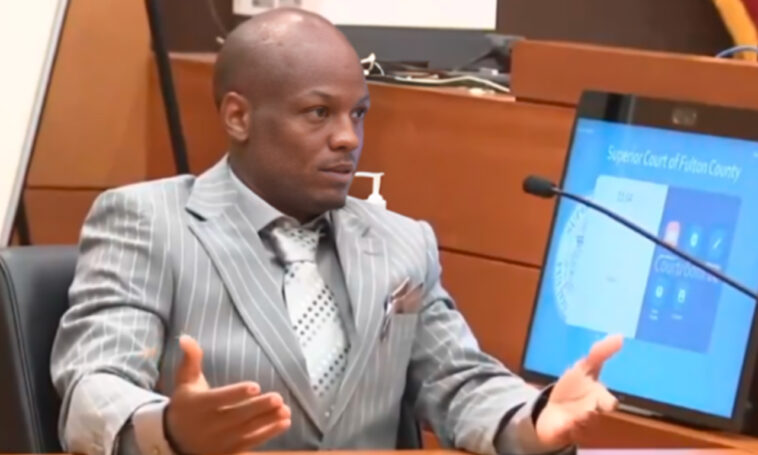Lil Woody testifies against Young Thug in RICO trial, revealing fears for his safety and legal pressures as reasons for cooperating with prosecutors.
In the ongoing RICO trial involving rapper Young Thug, the testimony of Lil Woody, whose real name is Kenneth Copeland, has captured significant attention. Lil Woody, a former close associate of Young Thug and a member of the YSL crew, has taken the stand to explain why he decided to cooperate with prosecutors and testify against his former friend. His testimony has raised important questions about loyalty, personal safety, and the influence of the legal system in cases involving alleged gang activity.
The trial, which resumed after a lengthy break, centers on allegations that Young Thug, whose real name is Jeffrey Lamar Williams, and his record label YSL are involved in various criminal activities, including murder. Prosecutors argue that YSL is a dangerous street gang, while Young Thug maintains that YSL stands for “Young Stoner Life,” a legitimate record label, and denies all charges against him.
Lil Woody explained his decision to testify, stating, “It was about survival. I didn’t want to die. I had to protect myself.”
During his cross-examination by Deputy District Attorney Simone Hylton, Lil Woody revealed his reasons for cooperating with the authorities. He stated that his decision to testify was driven by concerns for his personal safety and intense legal pressure. Woody claimed that he feared for his life, suggesting that there might have been threats against him that could be connected to Young Thug or individuals associated with him.
In his testimony, Woody admitted that he had lied to the police in the past and struggled to recall events from years ago. “I don’t recall nothing that happened years ago,” he said, adding to the complexity of his testimony. Despite these inconsistencies, Woody emphasized that his primary motivation was to tell the truth and protect himself from potential harm.
The decision to testify against Young Thug has not been without controversy. Many fans and social media users have condemned Lil Woody’s actions, labeling him a traitor and accusing him of putting his and his family’s lives in danger. The backlash reflects the complicated dynamics of loyalty and survival within both the music industry and gang culture.
Lil Woody’s testimony has also shed light on the internal conflicts and dangers within the YSL crew. He recounted feeling pressured to kill Young Thug following the murder of one of their rivals, highlighting the fear and tension that pervade such environments. These revelations have added to the drama of the trial and provided a glimpse into the perilous world of gang affiliation.
The trial has faced several procedural challenges, including changes in judges and multiple requests for a mistrial. Currently presided over by Judge Paige Reese Whitaker, the case has been marked by intense scrutiny of evidence and witness credibility. Lil Woody’s testimony, in particular, has been closely examined, with his admission of lying in previous interviews further complicating the jury’s task of assessing his reliability.
Throughout the trial, Lil Woody appeared visibly uncomfortable, especially during questioning by the prosecution. He initially invoked his Fifth Amendment rights against self-incrimination but ultimately chose to cooperate after being granted immunity by the government. This legal protection likely played a crucial role in his decision to testify, as the prospect of jail time would have been a daunting reality.
Lil Woody’s background is one of hardship and survival, shaped by his experiences growing up in rural Georgia. His affiliation with gangs and involvement in criminal activities led to his federal sentence, instilling in him a mindset focused on self-preservation. These experiences may have influenced his controversial decision to testify against Young Thug, prioritizing his safety over loyalty to his former friend.
Young Thug faces serious charges in this trial, including 65 counts related to RICO violations, murder, carjacking, and drug trafficking. As the trial progresses, it will be up to the jury to determine the credibility of the evidence and testimony presented, including Lil Woody’s account. The case has also sparked debate over the use of rap lyrics as admissible evidence, raising broader questions about the intersection of art, crime, and justice.
As this high-profile trial continues, all eyes remain on the courtroom, where the outcome will have significant implications for Young Thug, his associates, and the broader conversation about crime and justice in the music industry. The legal drama surrounding this case is far from over, and the resolution of these complex issues will be closely watched by fans, legal experts, and the public alike.



Join the Community and Be a Part of the Conversation
You must be logged in or registered to post a comment.